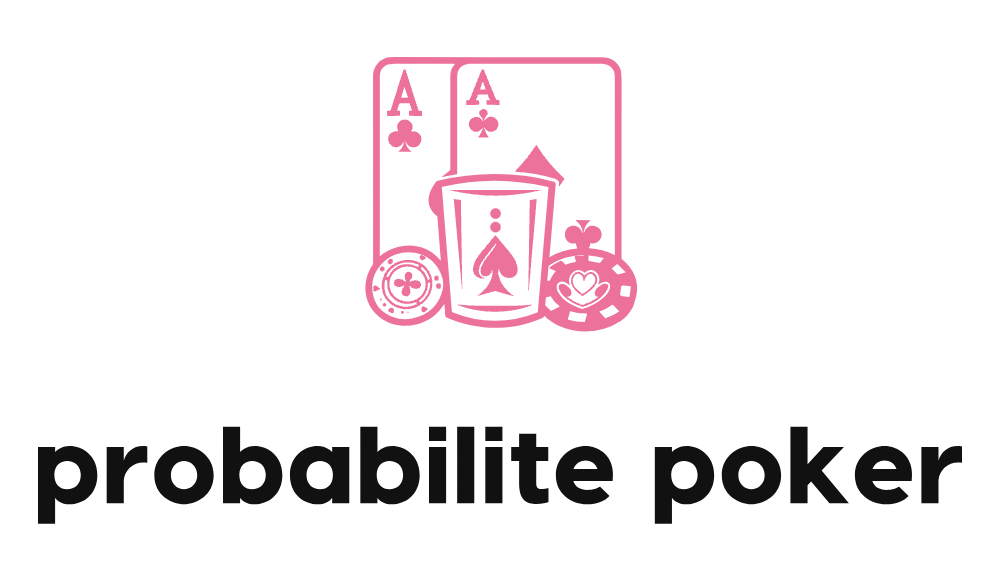We have all been there: sitting around a table, cards in hand, feeling the thrill of possibility that comes with each deal. Poker, with its rich history and strategic depth, captivates us as both a game of skill and chance.
As beginners, we understand the allure and intimidation that poker can present. That’s why we’ve decided to embark on this journey together, mastering the basics and uncovering the strategies that will enhance our game.
Whether we’re playing for fun with friends or eyeing more competitive settings, there’s a shared excitement in improving our skills and outsmarting our opponents. In this article, we’ll delve into essential tips that can transform our approach, from understanding the value of starting hands to mastering the art of bluffing.
Together, we’ll build a solid foundation that will not only boost our confidence but also elevate our enjoyment of this timeless card game.
Understanding Starting Hands
When we play poker, one of the most crucial skills is knowing which starting hands to keep and which to fold. As beginners, we often find ourselves overwhelmed by the array of possibilities at the table. However, mastering this skill can make us feel like we truly belong in the poker community.
Not all hands are created equal. Premium hands like pocket aces or kings are our best friends, giving us a strong chance of winning right from the start.
However, we shouldn’t just rely on luck. Recognizing the value in:
- Suited connectors
- High pairs
can give us an edge over our opponents.
Let’s not be afraid to fold weak hands, like low off-suit cards, even if it means waiting for a better opportunity. By focusing on solid starting hands, we build a strong foundation, setting ourselves up for success.
This is one of the most valuable poker tips for beginners, helping us grow in strategy and confidence.
Grasping Poker Odds
Understanding poker odds is essential for making informed decisions at the table and increasing our chances of success. By mastering odds, we’re not just relying on luck; we’re joining a community of players who make calculated moves.
Key poker tips for beginners include:
- Getting comfortable with the concept of calculating the odds of drawing certain cards.
- Using this knowledge to determine whether calling, raising, or folding is the best option.
When we’re familiar with poker odds, we can better assess the potential risk and reward of each hand.
For instance, knowing the odds of:
- Completing a flush
- Completing a straight
can guide our strategy, ensuring we’re not overcommitting to a losing hand. It’s about making smart decisions that keep us in the game longer.
By sharing these poker tips, we’re building a supportive network where everyone can thrive. Let’s embrace the mathematics of the game and enhance our skills together, one hand at a time.
Importance of Position Play
Understanding position play in poker gives us a strategic advantage by allowing us to make more informed decisions based on our relative seating at the table.
Late Position:
- When we’re in a late position:
- We have the chance to observe our opponents’ actions before making our move.
- This provides valuable insight into their potential hands.
- It can be a game-changer, especially for beginners eager to find their footing.
Early Position:
- In early positions:
- Our decisions are more challenging since we act without knowing how others will play.
- Embracing this challenge as part of our learning journey can foster a sense of camaraderie and growth among us.
- We’re all in this together, navigating the complexities of poker.
Key Takeaways:
-
Position play isn’t just a concept; it’s a vital poker tip for beginners aiming to enhance their skills.
-
By leveraging our position wisely:
- We increase our chances of success.
- We deepen our connection with the poker community.
Let’s embrace this strategy and play our hands with confidence.
Managing Your Bankroll Wisely
Managing our bankroll wisely is crucial for sustaining long-term success and enjoyment in poker. As members of the poker community, we often share the dream of making it big while enjoying the camaraderie of the game.
Poker tips for beginners:
-
Set a budget: Allocate a specific amount of money dedicated solely to poker. This ensures that our daily lives remain unaffected by our poker pursuits.
-
Play within your means: Only play games and stakes you can afford. It’s tempting to jump into higher stakes during a winning streak, but maintaining discipline helps avoid unnecessary risks.
-
Set limits: Manage your bankroll effectively by setting limits on losses and knowing when to walk away. This protects your funds and enhances your playing experience.
By practicing smart bankroll management, we ensure our poker journey is both sustainable and enjoyable. This approach also helps in creating lasting connections with fellow players.
Reading Your Opponents
Honing our ability to read opponents in poker can significantly enhance our strategic edge. It’s akin to joining a secret club where understanding others helps us succeed. Mastering this skill is a key step in becoming a part of the poker community.
Focus on Observing Body Language:
- Notice if opponents are relaxed or tense, as these clues might reveal their confidence level.
- Remember, a player who avoids eye contact might be bluffing or holding a weak hand.
Watch for Betting Patterns:
- Determine if their behavior is aggressive or cautious.
- Beginners often overlook how betting behavior changes with card strength. By paying attention, we can anticipate their moves and adjust ours accordingly.
Listening to Table Talk:
- Opponents sometimes inadvertently reveal their strategies through casual remarks or tone shifts.
Incorporating these poker tips for beginners into our games will not only sharpen our skills but also help us feel more connected with fellow players. Let’s keep practicing and growing together!
Enhancing Your Bluffing Skills
Mastering the art of bluffing is crucial for keeping opponents guessing and elevating our poker game. As beginners, we might feel anxious about bluffing, but it’s an essential skill that can set us apart. Let’s embrace the thrill of the bluff by understanding when and how to use it effectively.
One of the best poker tips for beginners is to observe the habits of our opponents. By doing so, we can identify the perfect moments to bluff when their guard’s down.
Timing is everything; we shouldn’t bluff just because we can. Instead, we need to:
- Gauge the table’s mood and our position.
- Play conservatively, so our bluff carries more weight.
- Use a consistent betting pattern to make our bluffs more believable.
Remember, confidence is key—our body language should match our story.
Let’s lean on each other for support and share experiences. Together, we’ll master the bluff and strengthen our poker community.
Practicing Patience and Discipline
In poker, patience and discipline are our greatest allies, helping us make sound decisions and avoid impulsive mistakes. As we embark on this journey together, remember that every hand offers an opportunity to practice these essential skills.
One of the most valuable poker tips for beginners is to resist the urge to play every hand. Let’s focus on quality over quantity, understanding that folding more often than we’d like is part of the strategy.
By exercising patience, we wait for strong hands rather than chasing losses or getting caught up in the excitement of the game. Discipline keeps us grounded, ensuring we stick to our pre-set limits and strategies instead of reacting emotionally.
When we cultivate these virtues, we can maintain control, even when the stakes are high.
By practicing patience and discipline, we foster a shared sense of community, where everyone values strategic growth. Let’s encourage each other to stay committed, knowing our perseverance will pay off in the long run.
Learning When to Fold
Knowing when to fold is crucial in poker because it helps us minimize losses and preserve our chips for more promising opportunities. As we sit around the poker table with our friends, it’s easy to get caught up in the excitement and hold onto a hand that isn’t likely to win.
Key Poker Tips for Beginners:
-
Recognize When a Hand Isn’t Worth the Risk: By folding at the right moment, we’re not only showing discipline but also ensuring we stick around longer in the game.
-
Folding as a Strategic Decision: Folding isn’t a sign of weakness; it’s a decision that can help us maintain our position and chip stack.
-
Observe Opponents and Understand Odds: These are essential in deciding when to fold.
By mastering the art of folding, we align ourselves with the mindset of experienced players. This enhances our journey in the world of poker and ensures we make smart decisions rather than taking reckless risks.
What are the different types of poker games, and which one is best for beginners?
When it comes to poker games, there are various types to choose from, each offering a unique experience.
For beginners, starting with a simple game like Texas Hold’em can be a great way to learn the ropes. It’s popular, easy to understand, and widely available both online and in-person.
As you gain more confidence and experience, you can explore other variations such as:
- Omaha
- Seven-Card Stud
Each of these games offers its own set of rules and strategies, providing a fresh challenge and opportunity to enhance your poker skills.
How do online poker platforms compare to live poker games in terms of learning and experience?
Online Poker Platforms
Online poker platforms offer:
- Convenience
- Accessibility
These platforms allow us to practice and learn from the comfort of our homes. They are excellent for honing skills due to their availability and ease of access.
Live Poker Games
Live poker games provide:
- A more immersive experience
- The opportunity to observe players’ physical cues and reactions
These games offer a more social and interactive learning environment, enhancing the overall poker experience through direct interaction with other players.
Conclusion
Both options have their merits.
Ultimately, a mix of both online and live poker can enhance our overall poker experience by combining the convenience and skill-building of online platforms with the immersive and social aspects of live games.
What are some common etiquette rules to follow at a poker table?
At a poker table, it’s important to respect others by following common etiquette rules. Key etiquette practices include:
- Avoiding acting out of turn.
- Not talking during a hand.
- Refraining from revealing your cards prematurely.
Being courteous, attentive, and considerate towards fellow players creates a positive atmosphere for everyone.
Remember to:
- Handle your chips and cards carefully.
- Keep your emotions in check.
These actions show respect for the game and your opponents.
Conclusion
Congratulations on completing this crash course in poker basics!
By mastering the following key concepts, you’re well on your way to becoming a skilled player:
-
Starting Hands: Understanding which hands to play and which to fold is crucial.
-
Poker Odds: Calculating the odds helps in making informed decisions during the game.
-
Position Play: Leveraging your position at the table can greatly influence your strategy.
-
Bankroll Management: Properly managing your funds ensures you can play sustainably.
-
Opponent Reading: Observing and interpreting opponents’ behaviors and patterns is key.
-
Bluffing: Knowing when and how to bluff can be a powerful tool in your arsenal.
-
Patience: Waiting for the right moment to act is often more beneficial than impulsive moves.
-
Discipline: Sticking to your strategy and not deviating under pressure is important.
-
Knowing When to Fold: Recognizing when to cut your losses is essential to long-term success.
Remember, practice makes perfect. Keep honing your skills at the table. With dedication and persistence, you’ll soon be able to hold your own in any poker game.
Good luck, and may the cards be ever in your favor!

